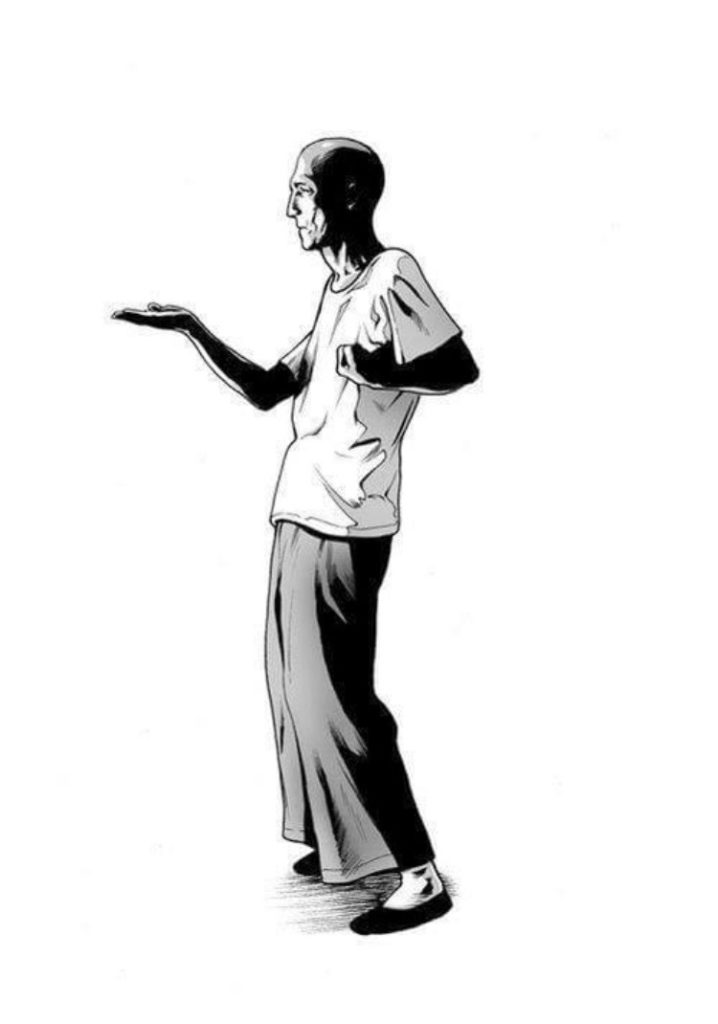You can see the basic Dan Chi Sau setup in the video above. It’s basically an exchange whereby two practitioners exchange attacks without overcommitting. Although Dan Chi Sau appears to be a simple (and perhaps even boring) drill, it teaches a number of fundamental principles which are often overlooked in a typical game of chi sau.
I was often bored drilling Dan Chi Sau, especially when an instructor had us doing it for long periods. I was much keener to play chi sau. It wasn’t until several years into my training that I saw the necessity of going back to the simple drill and doing it over again. In chi sau, there’s a lot more to think about. You’re under attack and have to think of your attacking and defending. When an opportunity presents itself in chi sau for an attack, it’s very easy to get over excited and ramp up the power to land the hit. But this will often lead to an overreach in position, locking out an arm, or even an over use of energy if the attack is countered. In the heat of a fast chi sau game, you can disconnect your arms from your base, meaning that in the real world, that attack wouldn’t have much power behind it.
Dan Chi Sau & Chi Sau
All these mistakes commonly happen in chi sau, particularly in a game which becomes competitive and when egos get involved! The more you lose control of your emotions in a game of chi sau, the greater the chances of making a technical mistake.
This is why Dan Chi Sau is such an important drill to keep coming back to. In dan chi sau, there is no competition, other than with yourself. You only have a very simple thing to do, which means you can remain focused and concentrate on not overcommitting. There’s no movement of the base (feet) and the shoulders remain square to your partner. However, you are still focused on landing an attack in Dan Chi Sau, should your partner not react (and defend). This means you must concentrate on landing the hit and only stop when the attack is nullified. In this way, you maintain your own defence with your single attacking arm, (using the arm as an attacking and defending tool).
When these principles are hard wired into your chi sau game, you would never make such a mistake as to overcommit an attack for the sake of ego, or panic. This idea also brings with it the base, which although you don’t move from your stance in Dan Chi Sau is still ultimately a part of the drill because you’re still hitting from your base in Dan Chi Sau.
Breaking Timing
As I persevered with Dan Chi Sau, over the years, I of course found my mind wandering, thinking I would prefer to be playing chi sau! When this happened, something would go wrong in the drill. I would over commit, or I would anticipate the block, stopping the attack too early and missing out on a valid hit by becoming too complacent and robotic.
This is a good reason to return to the drill. Not only does Dan Chi Sau teach you not to over commit, and never to preempt a block, but it also teaches you patience and focus. Breaking the timing of the drill is a good idea too, particularly once you have learned the basic idea of what to do. Once you know the drill, it’s very easy to become complacent with it. “I know this now – it’s boring”! But put those ideas into a fast paced game of chi sau and it’s almost guaranteed that you will make one of the mistakes the drill is there to correct!

When you break the timing of the drill the first time, you will undoubtably notice your partner has become like a robot and will still do the drill in metronomic fashion, as you were doing so at the previous pace. This is the value of breaking the timing. It shows you to react to your partner in real time, rather than repeating a robotic drill which can become meaningless without the deeper understanding of it.
So, when you’re next at class and I ask you to do Dan Chi Sau, celebrate because it is a major key to getting your chi sau to another level! Focus on doing the drill well but also with a mind of bringing these powerful ideas and principles into your game of chi sau permanently. No more reaching, no more over committing and never missing a strike when it presents itself because you are anticipating a defence.
If you’re not able to make a class nearby, checkout the wing chun online videos to go through the basics.


